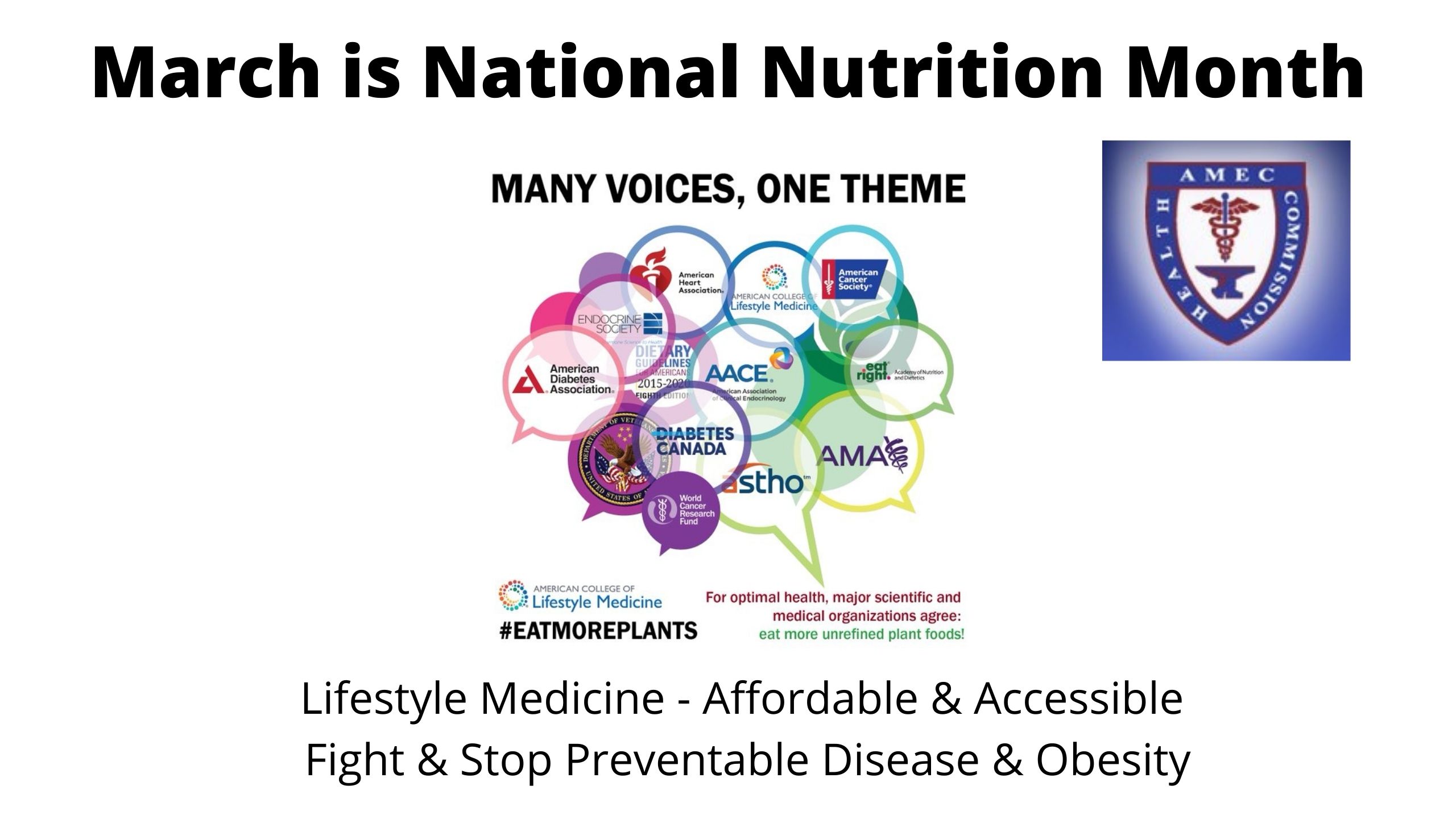Affordable and Accessible for All—Lifestyle Medicine
The Rev. Natalie Mitchem, Registered Dietitian Nutritionist
In the first chapter of the Third Epistle of John, the second verse says, “Beloved, I pray that all may go well with you and that you may be in good health, just as it is well with your soul.” March is National Nutrition Month. This year, the American College of Lifestyle Medicine (ACLM) shared in social media “Many Voices, One Theme.” This picture presents 14 respected and trusted health organizations that promote the importance of eating more unrefined plant-based foods to help fight, stop, and prevent disease. The organizations include the American Heart Association, American Cancer Society, American Medical Association, Diabetes Canada, American Diabetes Association, Endocrine Society, and the Academy of Nutrition and Dietetics.
“Lifestyle medicine,” according to the ACLM, is the foundation for conventional medicine and many clinical recommendations support lifestyle medicine as a means to address, prevent, and treat several chronic diseases. Affordable and accessible, evidence-based lifestyle medicine practices help to fight, stop, and prevent diabetes type 2, several cancers, obesity, stroke, heart disease, high blood pressure, and more.
These chronic health conditions place people of color at a higher risk for COVID-19. Lifestyle medicine practices include nutrition and healthy food choices that are mostly colorful plant-based foods, daily physical activity and fitness, stress management, avoidance of substance abuse like smoking and reduced alcohol consumption, restorative sleep, and healthy relationships facilitated virtually and in-person.
Access to healthy food can be a challenge. Helpful ways to access and increase consumption of healthy foods include eating more plant-based foods, drinking water flavored with fresh fruit, planting a church, community, or home garden, cooking more at home to control ingredients, requesting healthy food choices at food pantries, and advocating for healthy food choices in corner stores.
Internationally, individuals and populations in all socioeconomic groups can apply lifestyle medicine practices. It opens the door to affordable and accessible practices everyone can begin to address many disease conditions and promote positive health changes. Board certifications in lifestyle medicine for medical doctors and health practitioners are offered by the ACLM.
Learning about lifestyle medicine is not only for March. Visit the ACLM’s website at www.lifestylemedicine.org/ACLM for more information. The ACLM “simply believes that we should put as much focus on lifestyle Medicine as we do medications and procedures.” If you have a medical provider and health insurance, you can also include lifestyle medicine to ensure you are participating in your personal wellness. If you, a loved one, or members of your faith-based community lack finances or access, lifestyle medicine is affordable and accessible.
The International Health Commission provides resources to promote and support lifestyle medicine and church and community gardens as an affordable and accessible practice for everyone. Visit their website at www.AMEChealth.org.





